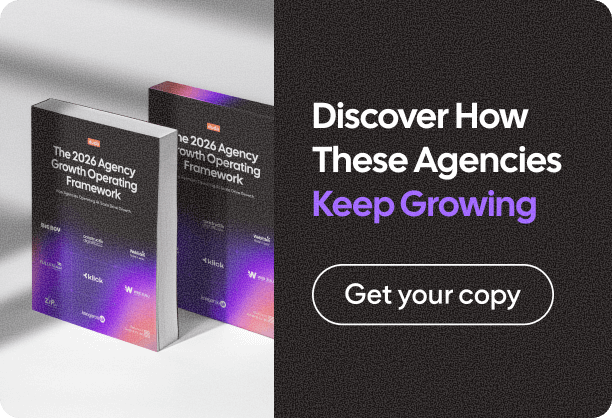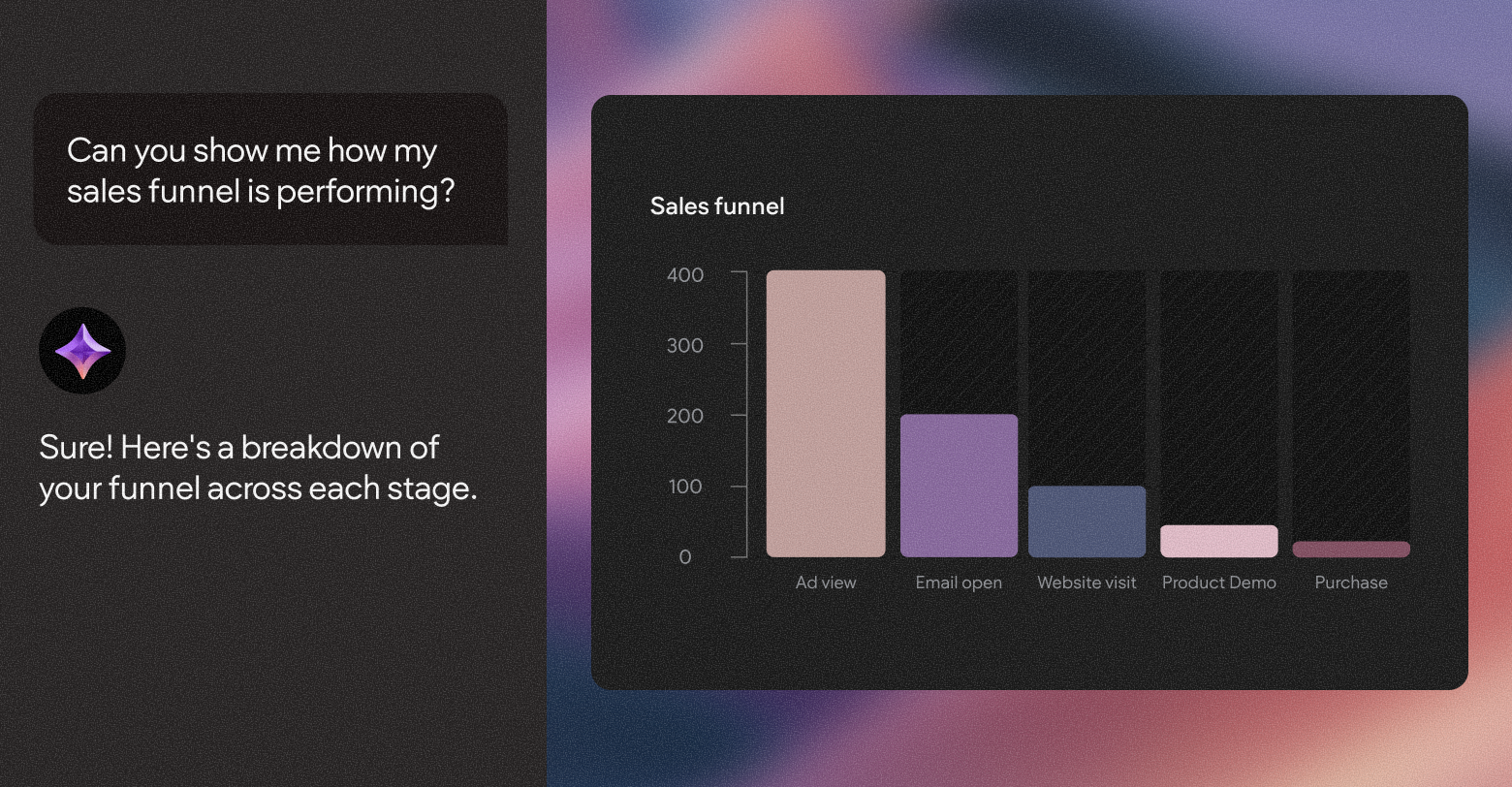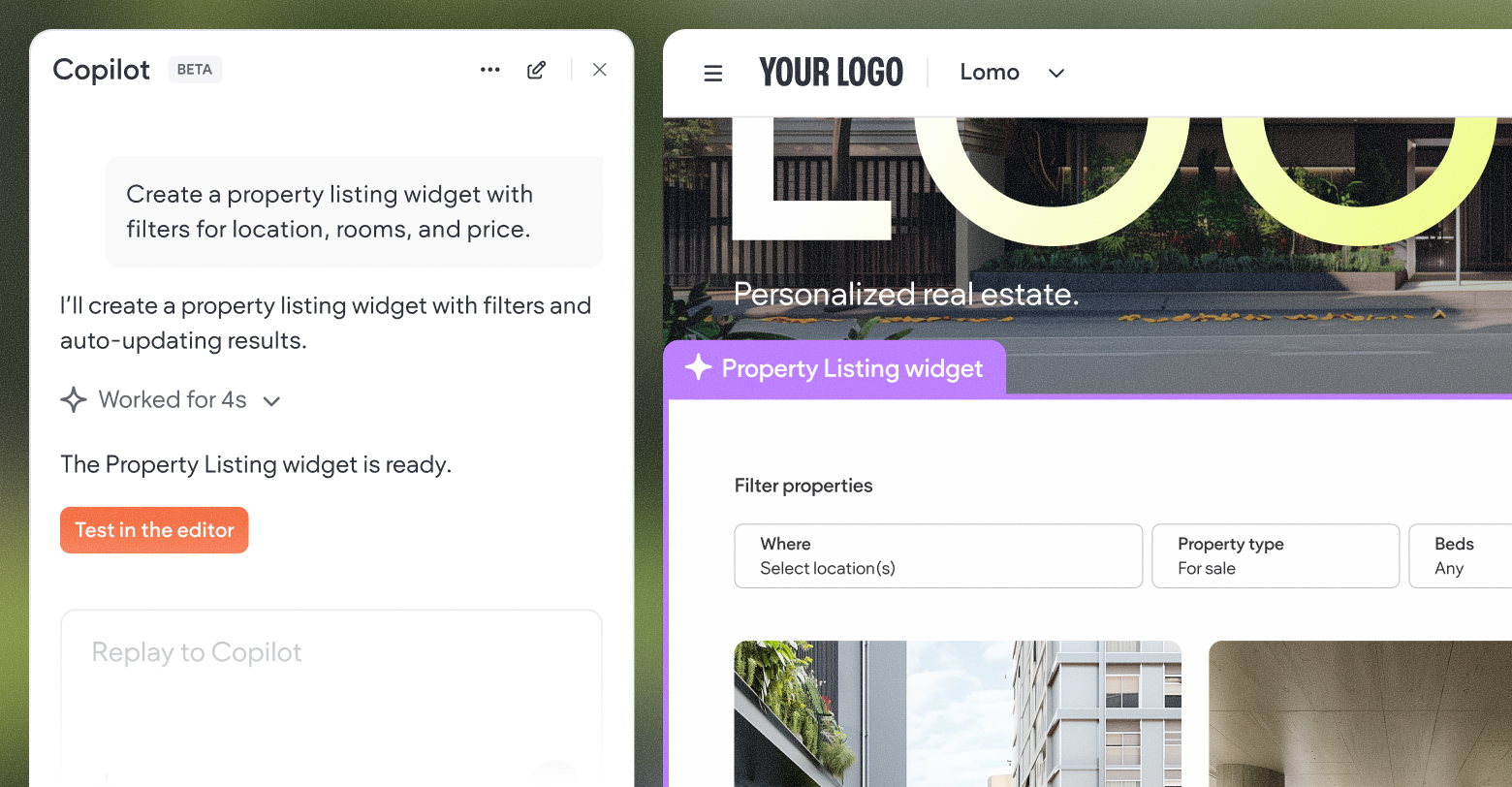A study conducted
last year by Forrester found that 91% of agencies in the United States are either currently using, or are actively exploring, ways to leverage artificial intelligence in their business processes; a number that has likely increased since then.
The
2024 State of Marketing AI Report from the Marketing AI Institute dived a little deeper, finding that the majority of these professionals are currently leveraging, or planning to leverage, AI to reduce the amount of time they spend on “repetitive, data-driven tasks.” The second largest cohort in that study claimed to be looking to gain more “actionable insights” from their marketing data.
In practice, agencies looking to utilize artificial intelligence tools for these purposes quickly realize that “automation” is a term easier said than done. Large language models require significant amounts of context before they’re useful in a business setting, context that can be time consuming to include in every prompt. OpenAI addressed this with their “projects” feature; workspaces designed to make context reusable. Google, on the other hand, released an entirely new product,
NotebookLM, to address the same issue.
What if you didn’t need to collect mountains of context for your LLMs? What if they could gather marketing data themselves, at the exact moment you needed it? More importantly, what if, instead of just querying your systems, they could take action in your marketing tools as well?
That’s where the “Model Context Protocol” comes into play.
Introducing the Model Context Protocol
The
Model Context Protocol, often abbreviated as “MCP” or referred to as an external “connector,” is an emerging industry-standard way for third-party tools to communicate with LLMs.
Pioneered by Anthropic and later adopted by all major industry players including Google and OpenAI, the MCP standard acts as a sort-of “USB port” for LLMs. Tools that support the MCP standard, referred to as “MCP servers,” plug into the LLM to share data and instructions bi-directionally.
Take Duda, for example. Duda is a specialized, collaborative website building platform for agencies. Duda’s platform holds a lot of information such as website traffic information, user accounts, client accounts, permission data, form submissions, etc—not to mention the contents of the websites themselves. Professionals building on Duda can review and manipulate all of this data and now, thanks to MCP, LLMs can too.
If the way an MCP server works sounds similar to an
API, or even
Duda’s Zapier integration, that’s because, under the hood, it very much is. Duda’s MCP server, for instance, builds upon the same foundational technologies that power Duda’s REST API, and, consequently, Duda’s Zapier integration. That means non-technical designers, account managers, and agency owners can create exceptionally powerful
automations without writing a single line of code.
LLMs can connect to multiple MCP servers simultaneously, as well. Imagine connecting Duda and your Google Drive account to your favorite AI tool, then instructing said tool to reference a specific Google Sheet document full of keywords and create draft blog posts based on those keywords. That’s entirely possible, and it’s possible today!
Leveraging Duda’s MCP server
Connecting Duda’s MCP server to your LLM of choice, such as
Claude,
Cursor, and the
OpenAI Responses API, is simple and secure, with some slight variation depending on your account plan. Accounts subscribed to either Duda’s Agency or White Label plan may utilize a
server URL to connect to Duda’s MCP server, while accounts subscribed to Duda’s Custom Plan may utilize an
access token.
These are, generally speaking, similar forms of authentication, with the primary exception being that the access token exposes more tools than the server URL. Please refer to your LLM’s documentation for specific instructions on how to connect MCP servers, as each platform is different.
As you move through the connection process, you may be asked by Duda to permit your LLM to access certain amounts of information and/or perform certain actions on your behalf. Take this notification seriously—your LLM can make
permanent changes to your Duda sites. Prompt responsibly!
To minimize the risk, Duda does not allow LLMs to perform certain highly destructive behaviors, like deleting sites. You’ll have to do that manually.
What Duda does allow, though, are a number of key actions including:
- Accessing site data
- Reading, creating, and modifying collections
- Site management
- Team and client management
- Content creation
- Store management
A
list of all exposed tools are available within Duda’s developer documentation, as well as the plan levels associated with each tool.
How Duda’s MCP server can automate agency workflows
Duda’s MCP server gives agencies the ability to automate a wide variety of workflows, turning what were once multi-step, manual processes into seamless, AI-driven actions. Instead of logging into multiple platforms, copying information between systems, or manually publishing content, teams can trigger complex tasks with a single natural language request.
For example, an account manager might ask their AI assistant to create and publish seasonal blog posts, update store inventory across multiple client sites, and generate a performance report—all within the same session. By connecting Duda’s MCP server with other MCP-enabled tools such as HubSpot, Jira, or Monday, agencies can orchestrate entire cross-platform campaigns without breaking stride.
This shift not only shortens turnaround times but also allows agency staff to spend more energy on strategic initiatives that drive measurable client growth. Below are more concrete ways agencies can take advantage of Duda’s MCP server today to streamline their business processes.
Publishing blogs at scale
Agencies managing content marketing across multiple clients can use Duda’s MCP server to centralize and accelerate blog production. For example, a single natural language command such as “Research current home renovation trends, draft three 1,200-word blog posts with SEO-optimized titles, and publish them as drafts to my site Boulder Real Estate” can replace days of manual work. The AI assistant handles topic research, drafting, formatting, and uploading directly into the Duda CMS. Seasonal campaigns like “holiday gift guides” or “back-to-school specials” can be launched for dozens of clients at the same time, ensuring consistent quality and precise timing across all campaigns.
Automating client reports
Reporting often requires pulling data from multiple platforms and formatting it for presentation. With Duda’s MCP, an account manager can request, “Generate a monthly performance report for my client, Art Suite, including top-selling products, traffic by device, and conversion rates." The AI retrieves analytics, processes the information into visuals, and prepares the file for delivery. This reduces report preparation from hours to minutes and allows agencies to offer faster, more frequent reporting, enhancing client satisfaction.
Creating collections
Structured data collections such as product catalogs, service listings, or event calendars can be updated in bulk using MCP. An agency supporting a chain of boutique hotels could have the AI gather local tourism events, standardize the details, and push them into a “Local Events” collection on each hotel site. Similarly, an eCommerce agency could sync product data from a supplier database into multiple client stores, ensuring inventory details remain accurate without manual uploads.
Orchestrating cross-platform workflows
For agencies managing several tools, Duda’s MCP server can coordinate actions across platforms. A lead generated in HubSpot could trigger a Duda site update, create a task in Jira for a new landing page, and send a notification in Slack. For campaign launches, a single request such as “Create a seasonal landing page in Duda for my retail client, based on the campaign brief titled Seasonal Retail Campaign in my Google Drive” can flow through connected systems without switching between applications.
Accelerating onboarding and client setup
Onboarding new clients usually involves multiple steps: creating the site, adding initial content, assigning permissions, and updating business information. With MCP, agencies can condense this into a single request: “Create a new site using our retail template, set business info from the client’s intake form, add the client’s marketing manager as an editor, and publish the About and Contact pages”. This method shortens delivery time while ensuring the process follows a consistent standard for all clients.
Rapid store and product updates
For eCommerce clients, time-sensitive store updates such as flash sales or inventory changes can be completed instantly with MCP prompts. For instance: “Add three new product variations to the Summer Collection, update pricing for the August promotion, and publish to the store”. Agencies can also perform batch updates across multiple client stores, a capability that is especially valuable during peak retail seasons.
Much, much more
Hopefully by now you’re beginning to see the potential. Natural language commands can be chained together, leveraging the inherent skills LLMs possess like content writing and research, to create powerful, complex automations.
Below are a few specific prompt examples based on a fictitious website “Balloonatics.” Please do not actually add Amy as a client to your website, she’s far too busy writing emails for Duda to operate a balloon business.
- “Add amy@duda.co as a client to my site Balloonatics.”
- “How many form submissions did my website Balloonatics get last month?”
- “Research interesting topics about balloons, then write three 1400-word blog articles in paragraph format. Then, add those articles as draft blogs to my site Balloonatics.”
- “Create a detailed site performance report with charts for my site Balloonatics. Include site traffic by source and device, form submissions and top 10 visited pages.”
- “Create a new collection on my website Balloonatics, then fill it with potential balloon animals. One column should be the name of the balloon animal, while the other should be a ranking of how difficult it is to make, rated either easy, medium, advanced, or expert.”
- “Republish my site Balloonatics.”
A glimpse into the future of agency operations
AI tools, enabled by technologies like Duda’s MCP server, have the potential to fundamentally reshape how digital marketing agencies operate in the coming years. As LLMs become more capable and MCP adoption spreads across industry-standard tools, agencies will be able to manage an unprecedented volume of client activity with far fewer manual interventions.
Routine yet essential tasks—content publishing, reporting, data entry, and cross-platform updates—can be executed instantly, enabling agencies to scale their services without adding headcount. This level of operational elasticity could open the door for agencies to take on more clients, deliver faster turnaround times, and offer new service tiers that were previously unprofitable due to labor costs.
The ability to deliver higher-value results in shorter timeframes positions agencies not just as service providers, but as innovation partners capable of driving digital transformation for their clients.
Looking ahead, the real opportunity lies in how agencies leverage MCP to move from reactive service delivery to proactive, insight-driven campaigns. By connecting Duda’s MCP server with analytics platforms, CRMs, and advertising systems, agencies could create automated feedback loops where performance data directly informs new marketing actions.
Picture a scenario where a sudden spike in product sales triggers automatic creation of a targeted upsell campaign, complete with updated landing pages, personalized email flows, and social ads, all without requiring a human to initiate the process.
Such capabilities will allow agencies to anticipate client needs, respond to market changes in real time, and differentiate themselves in an increasingly competitive industry. Ultimately, MCP-powered automation could free agency teams to focus their expertise where it matters most: strategy, creativity, and building long-term client relationships.
This is a really exciting time to be building websites.
Duda MCP FAQ
The Model Context Protocol, or MCP, is an open-source protocol that standardizes how applications provide context to LLMs. In a sense, they’re like little apps for AI Assistants. MCP servers provide information and capabilities, giving AI Assistants more control over your favorite tools.
What can Duda’s MCP server do?
Duda’s MCP server leverages the same technologies that underpin Duda’s powerful REST API—meaning both tools offer a similar suite of robust site management capabilities. You can view data about all of your sites, modify them, republish them, analyze their traffic, manage their blogs, manage their stores, and much, much more. You cannot delete sites via Duda’s MCP server. For more information, please refer to our comprehensive support documentation.
Which AI tools support MCP?
The MCP standard is supported by a wide range of AI tools and platforms. Claude, created by Anthropic, supports MCP across all of their interfaces; web, desktop, and mobile, while OpenAI supports MCP via their Responses API. The MCP standard is additionally supported by Gemini’s Command Line Interface and Cursor, alongside many other tools. If you don’t see your favorite LLM listed, please check their support or developer documentation—the number of platforms adding support for MCP continues to grow.
How can I get started with Duda’s MCP server?
How you personally get started with Duda’s MCP server may different depending on which AI Assistant you’re using, referred to in this context as the MCP “client.” You can learn more by referring to our comprehensive support documentation, as well as by exploring the unique support documentation associated with your MCP client.
Do I need an account to use Duda’s MCP server?
Yes! Duda’s MCP server is personalized to your account and, more importantly, the websites available on that account.
Is the Duda MCP server compatible with all LLMs?
Duda’s MCP server is compatible with every LLM that supports the MCP standard. MCP is a well supported standard that has been, or is being, adopted by all major players including OpenAI, Google, and Anthropic.
Is Duda’s MCP server secure?
Yes! Every instance of Duda’s MCP server requires authentication unique to the account it is associated with and is backed by the same enterprise-grade security that powers our REST API.
Can Duda’s MCP server hallucinate?
MCP servers are not AI Assistants. Instead, they’re merely a collection of tools we make available to your favorite AI Assistant. The accuracy of our data is dependent upon which LLM you chose, as well as how you prompt that LLM. We encourage you to prompt responsibly, and to double-check responses before republishing your sites.
Do I need the Custom Plan to use Duda’s MCP server?
No! While some actions are exclusive to the Custom Plan, many capabilities are available to your unique MCP server on other plans. Please refer to our comprehensive support documentation
for more information.
Are there any limitations to how often I can use Duda’s MCP server?
Duda’s MCP server is rate limited to about 10 calls per second for most actions to maintain platform performance, similarly to our API. Free trial users may face stricter usage limits. Additionally, your chosen MCP client may impose their own limitations.
How much does Duda’s MCP server cost?
Duda’s MCP server is included with your account plan, with varying degrees of functionality depending on your chosen tier. Please refer to our comprehensive support documentation
for more information on the functionalities available to you.







